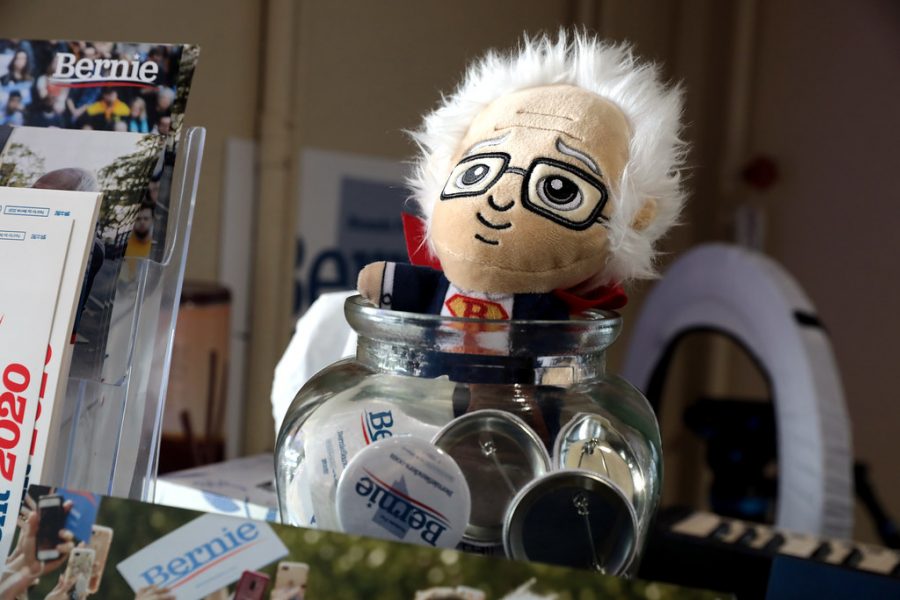Opinion | Breaking down the effect “Bernie Bros” have on Sanders’ campaign
March 22, 2020
With 2020 Democratic presidential candidate Bernie Sanders’ campaign reeling, detractors of his coalition are blaming his fall from Democratic frontrunner to distant second on what some consider pro-Sanders zealotry.
Since 2016, a significant portion of the media narrative surrounding the Vermont senator has revolved around the supposed impoliteness of his supporters who, according to Joan Walsh at The Nation back in 2016, “prey[ed] on female Hillary Clinton supporters with, at best, condescension and, at worst, sexist abuse.”
That line has not changed in the intervening four years; in February, Nevada Culinary Union Local 226 denounced “Senator Sanders’ supporters” for “viciously attack[ing] the Culinary Union.” Such stories suggest that those who back the self-proclaimed Democratic socialist do not abide by societal mores.
But is such a contention true? A recent study suggests that distaste toward “Bernie Bros” says more about those peddling that tale than it does about the reality of the race for the Democratic nomination.
According to Jeff Winchell, a graduate student at Harvard University who examined 6.8 million tweets on Twitter, the idea that Sanders fans are different than supporters of any other candidate is inaccurate. Using a technique called “sentiment analysis,” an algorithm designed to search for emotional content, Winchell took a random sample of 100 million Twitter accounts that followed the nine most popular Democratic presidential candidates. What he found was that “Bernie followers act pretty much the same on Twitter as any other follower” of any other candidate. There was only one difference between these “Bernie fans” and the fans of any other candidate—a difference that says as much about Sanders’ critics as it does about his supporters.
The difference, Winchell told Keith Spencer at Salon, is that “Bernie has a lot more Twitter followers than Twitter followers of other [competitors’]campaigns.” According to Winchell, Sanders has nearly 18 million followers while the next closest was Elizabeth Warren, with slightly more than 8 million followers.
In other words, despite each campaign enduring sectarian Twitter followers who produce negative tweets at similar rates, Sanders simply has greater numbers of followers. Subsequently, because Sanders has more Twitter followers, he possesses a larger base willing to alienate and attack opposing coalitions. Sanders’ fans produce more negative tweets than other candidacies because Sanders is more popular on social media outlets like Twitter than other candidates—maybe not the worst problem for a political candidate.
If Sanders fails in his ongoing quest for the Democratic nomination, it won’t be because of his followers. It will be because some portion of the Democratic establishment is willing to bet that the American public is unwilling to examine the concept of relativity. If so, the question of “Bernie Bros” is dooming a lot more than the outcome of a single political contest, even if it is for the presidency.








Susan gillespie • Mar 23, 2020 at 11:22 am
Interesting perspective